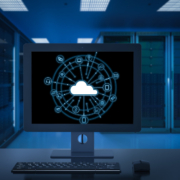Secondary Backups: A Must for Microsoft 365
In today’s digital workplace, Microsoft 365 is the engine behind communication, collaboration, and file sharing for countless businesses. But while Microsoft provides powerful productivity tools, it’s a mistake to assume they also provide full-scale data protection.
At Remington Computer Services, we help organizations navigate IT strategy and risk with confidence. And one of the most common blind spots we see? Businesses that rely entirely on Microsoft 365’s native tools—without realizing just how vulnerable their data actually is.
The Myth: “It’s in the Cloud, So It’s Safe.”
Microsoft 365 does offer service-level availability, redundancy, and short-term retention. But these features are not the same as a true backup solution.
Microsoft’s shared responsibility model makes this clear: they manage the infrastructure—you’re responsible for the data. That means if files are deleted, corrupted, or encrypted by ransomware, there may be no way to recover them unless you’ve implemented a separate backup solution.
Real Risks When You Don’t Back Up Microsoft 365
Here’s what can go wrong when you don’t have a secondary backup in place:
Permanent Deletion
After Microsoft’s retention window closes, deleted emails or files are gone forever. This includes content removed by mistake—or intentionally.
Cyber Threats
Ransomware doesn’t discriminate. Once inside, it can encrypt cloud data in SharePoint, OneDrive, and Teams just as easily as it does local drives.
Compliance Violations
Many industries—such as healthcare, finance, and legal—require long-term, auditable data retention. Microsoft’s default retention simply doesn’t meet these requirements.
Limited Restore Capabilities
Need to restore one specific version of a file from three months ago? Or recover an ex-employee’s mailbox? Without a backup, your options may be limited or nonexistent.
Why Secondary Backups Are Essential
A dedicated Microsoft 365 backup solution provides:
- Daily, automated backups of all your M365 data
- Unlimited or configurable retention periods
- Granular recovery of individual items like emails, documents, and chat logs
- Protection from user error, insider threats, and cyberattacks
- Faster recovery time when every second counts
It’s not just about convenience—it’s about protecting your operations, your clients, and your compliance posture.
Make Backup Part of Your IT Strategy
At Remington Computer Services, we work with clients to create holistic IT strategies that address not only productivity and performance—but also risk, resilience, and compliance. That includes ensuring your Microsoft 365 environment is backed by a secure, standalone backup system.
We help you select the right solution, implement it efficiently, and monitor it over time so you’re always one step ahead of data loss.
Ready to Close the Gap in Your Cloud Protection?
You’ve invested in Microsoft 365 to run your business—now invest in keeping that data safe. Remington Computer Services is here to help you build a smarter, safer IT ecosystem.
Let’s talk about how a secondary backup can fit into your broader strategy—and protect what matters most.
Remington Computer Services has been serving the Rhode Island, Connecticut and Massachusetts area since 2010, providing IT Support such as technical helpdesk support, computer support and consulting to small and medium-sized businesses. Our experience has allowed us to build and develop the infrastructure needed to keep our prices affordable and our clients up and running. Schedule a complimentary consultation today.




